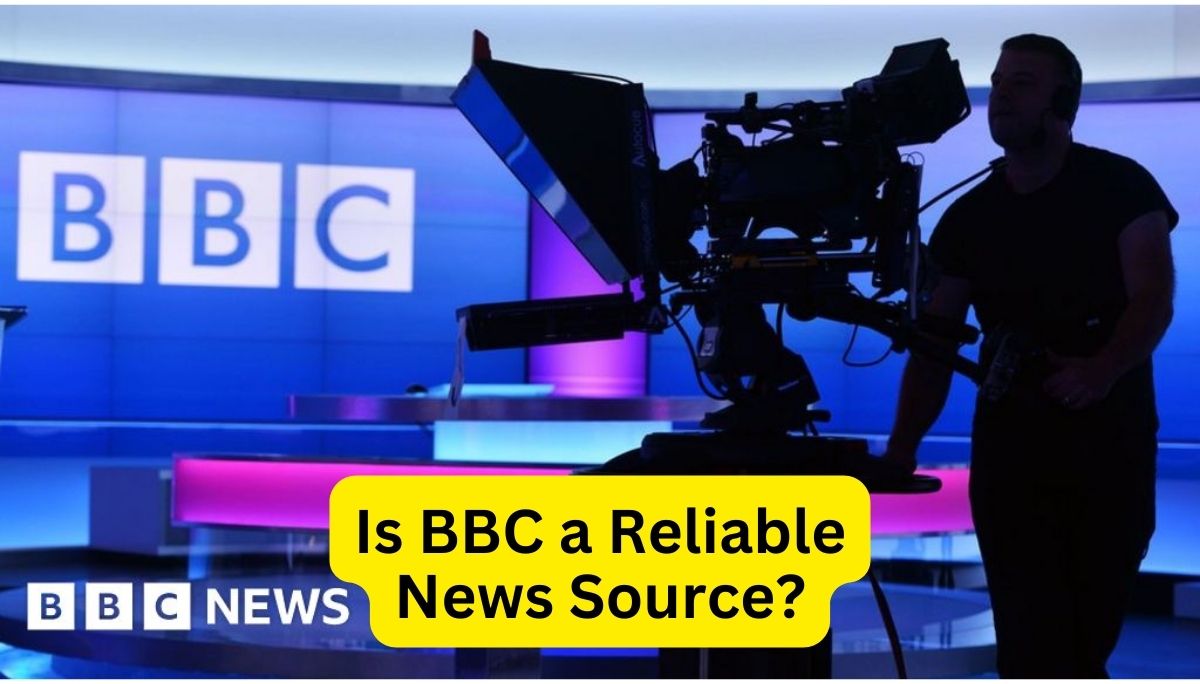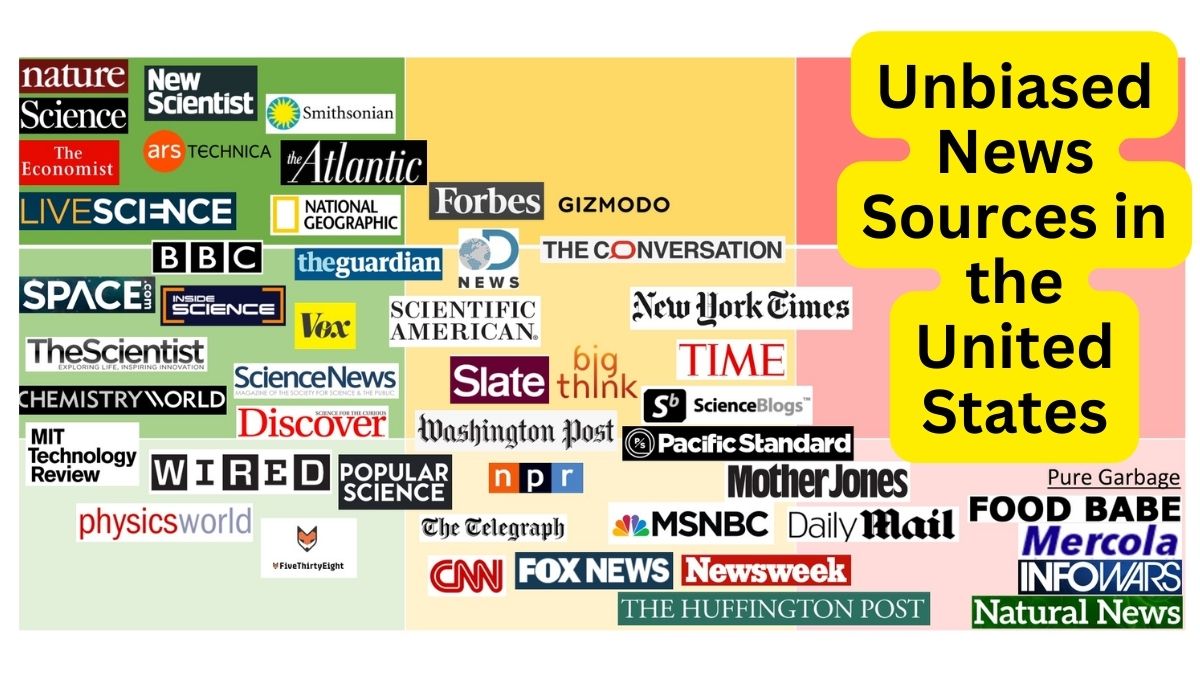Is Fox News a Reliable and Unbiased News Source? Explore the reliability & impartiality of Fox News
In today’s media landscape, determining the reliability and impartiality of news sources is crucial. Fox News, a prominent cable news network, often evokes mixed reactions regarding its credibility and fairness. Let’s delve into this topic and explore whether Fox News can be considered a reliable and unbiased source of information.

Table of Contents
Introduction
In the ever-evolving landscape of news media, few organizations have garnered as much scrutiny and debate as Fox News. Known for its conservative-leaning coverage and often provocative commentary, the network has been both celebrated by its supporters and vilified by its critics. As consumers of information, it’s crucial to approach news sources with a critical eye and an open mind, separating fact from fiction and forming well-informed opinions.
In this article, we’ll delve into the complex issue of Fox News’ reliability and impartiality. We’ll examine the accusations leveled against the network, explore its fact-checking practices and accountability measures, and underscore the importance of media literacy and considering alternative perspectives.
Understanding Media Bias
Before delving into the specifics of Fox News, it’s essential to acknowledge that no news organization is entirely free from bias. Bias can manifest in various forms, including selective reporting, framing, word choice, and omission of relevant information. Even reputable news outlets can exhibit biases based on their editorial policies, ownership structures, or the personal beliefs of their journalists and editors.
To identify potential biases, resources like Ad Fontes Media’s Media Bias Chart can be helpful. This interactive tool rates news sources based on their perceived bias and reliability, providing a visual representation of where different outlets fall on the political spectrum.
Fox News: A Closer Look
Critics of Fox News have leveled several accusations against the network, ranging from claims of overt partisan bias to allegations of spreading misinformation and propagating conspiracy theories. Here are some of the primary criticisms:
- Conservative Slant: Perhaps the most common criticism of Fox News is its perceived conservative bias, with many accusing the network of favoring right-wing political views and actively promoting Republican agendas.
- Sensationalism and Lack of Context: Some critics argue that Fox News often employs sensationalist tactics and fails to provide adequate context or nuance in its reporting, favoring provocative headlines and soundbites over in-depth analysis.
- Misinformation and Conspiracy Theories: There have been instances where Fox News has been accused of amplifying misinformation, conspiracy theories, and unsubstantiated claims, particularly in relation to controversial topics like the COVID-19 pandemic and the 2020 presidential election.
- Blurring of News and Opinion: Critics contend that Fox News blurs the lines between news reporting and opinion programming, allowing commentators and pundits to present their personal views as fact without sufficient fact-checking or accountability.
It’s important to note that these accusations are not universally accepted, and Fox News and its supporters have vehemently defended the network’s journalistic practices and editorial decisions.
Fact-Checking and Accountability
In response to criticisms and concerns about credibility, Fox News has implemented various measures to promote transparency and accountability:
- Fact-Checking and Corrections: Fox News maintains a dedicated fact-checking team and a corrections process to address errors or inaccuracies in its reporting.
- External Oversight: The network is subject to oversight by organizations like the News Media Alliance and industry watchdogs that monitor journalistic standards and practices.
- Public Editor: Fox News has appointed a public editor tasked with evaluating the network’s coverage and addressing concerns raised by viewers and critics.
- Diversity and Inclusion Initiatives: In recent years, Fox News has made efforts to promote diversity and inclusion, both in its on-air talent and behind the scenes, aiming to represent a broader range of perspectives and voices.
While these measures are in place, critics argue that their effectiveness and implementation remain subject to debate and ongoing scrutiny.
Alternative Perspectives and Media Literacy
While the debates surrounding Fox News’ reliability and impartiality are complex and multifaceted, it’s essential to acknowledge that no single news source can provide a complete and unbiased perspective on complex issues. To gain a well-rounded understanding, it’s crucial to consume news from a variety of reputable sources, including those that may offer alternative viewpoints.
Engaging with diverse perspectives can help broaden your understanding and challenge your own assumptions and biases. Additionally, cultivating media literacy skills, such as identifying persuasive techniques, recognizing logical fallacies, and understanding the influence of bias, can help you become a more discerning news consumer.
Resources like The News Literacy Project and The Center for News Literacy offer valuable tools and educational materials to help individuals improve their media literacy skills.
Frequently Asked Questions: Is Fox News a Reliable and Unbiased News Source?
Q: Is Fox News a reliable and unbiased news source?
A: The reliability and impartiality of Fox News have been the subject of ongoing debate and controversy. While the network has implemented measures to promote transparency and accountability, critics argue that its conservative bias and alleged promotion of misinformation undermine its credibility as an unbiased news source.
Q: How can I verify the accuracy of Fox News’ reporting?
A: To verify the accuracy of Fox News’ reporting, it’s essential to cross-check information with other reputable sources, consult fact-checking organizations, and monitor the network’s corrections process. Additionally, engaging with external oversight bodies and media watchdogs can provide valuable insights into the network’s journalistic practices.
Q: Should I rely solely on Fox News for news and information?
A: It’s generally advisable not to rely solely on any single news source, including Fox News. Consuming news from a variety of reputable sources, including those that may offer alternative perspectives, can help broaden your understanding and challenge your own biases and assumptions.
Q: H2 How can I identify potential biases in Fox News’ reporting?
A: To identify potential biases in Fox News’ reporting, look for signs of selective reporting, framing, word choice, and omission of relevant information. Additionally, consider consulting resources like Ad Fontes Media’s Media Bias Chart to assess the network’s perceived bias and reliability.
Q: Is Fox News completely unbiased?
A: Fox News has been criticized for its perceived conservative bias, but opinions on its impartiality vary among viewers.
Q: Can I trust Fox News for accurate reporting?
A: While Fox News provides news coverage, it’s essential to fact-check and verify information from multiple sources.
Q: Are there alternative news sources to Fox News?
A: Yes, many alternative news sources offer different perspectives, including CNN, MSNBC, BBC, and NPR.
Q: How can I determine if a news source is unbiased?
A: Evaluate a news source’s credibility by considering its editorial standards, fact-checking practices, and reputation for accuracy. Additionally, consuming news from various sources can provide a more balanced perspective.
Q: What role does media literacy play in evaluating news sources like Fox News?
A: Media literacy plays a crucial role in evaluating news sources like Fox News. By developing skills such as identifying persuasive techniques, recognizing logical fallacies, and understanding the influence of bias, you can become a more discerning news consumer and better equipped to separate fact from fiction.
In conclusion, the debates surrounding Fox News’ reliability and impartiality highlight the importance of critical thinking, media literacy, and engaging with diverse perspectives when consuming news and information. While the network has implemented measures to promote transparency and accountability, ongoing scrutiny and a commitment to fact-checking and verification are essential. Ultimately, it’s up to individual consumers to approach news sources with an open mind, separating fact from fiction, and forming well-informed opinions based on a variety of reputable sources.






